News
-
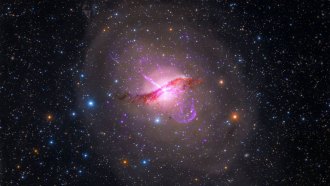 Astronomy
AstronomyThe latest picture of a black hole captures Centaurus A’s massive jets
Data from the Event Horizon Telescope reveal new details of jets spewing from the supermassive black hole at the center of the galaxy Centaurus A.
-
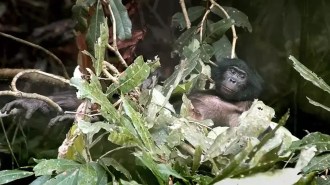 Animals
AnimalsClimate change may be leading to overcounts of endangered bonobos
A changing climate in Congo is affecting how scientists count bonobos’ nests, possibly skewing estimates of the great ape population, a study suggests.
By Pratik Pawar -
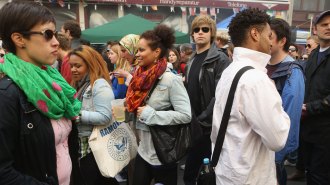 Humans
HumansOnly a tiny fraction of our DNA is uniquely human
Some of the exclusively human tweaks to DNA may have played a role in brain evolution.
-
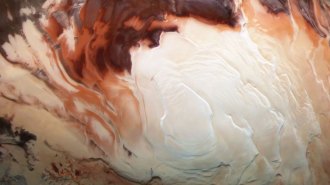 Planetary Science
Planetary ScienceLakes of liquid water at Mars’ southern ice cap may just be mirages
In 2018, scientists found evidence for water lakes sitting beneath the southern Martian ice cap. New evidence suggests the lakes might not exist.
By Adam Mann -
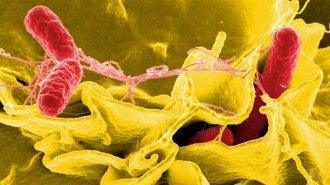 Health & Medicine
Health & MedicineHuman cells make a soaplike substance that busts up bacteria
Nonimmune cells can fight off pathogens by releasing a detergent-like molecule that dissolves bacterial membranes.
-
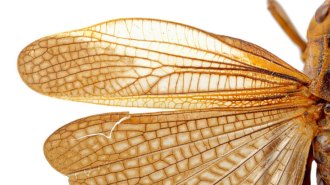 Paleontology
PaleontologyInsects had flashy, noise-making wings as early as 310 million years ago
The structure of a grasshopper-like insect’s fossilized wing suggests it crackled and reflected light, perhaps to attract mates or warn off predators.
-
 Health & Medicine
Health & MedicineMillions of kids have missed routine vaccines thanks to COVID-19
Missed shots due to the pandemic may have cut vaccination rates for measles, diphtheria, tetanus and pertussis to their lowest levels in over a decade.
-
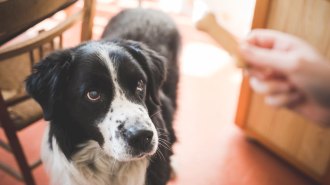 Animals
AnimalsWould dogs return the favor if you gave them treats? It’s complicated
An experiment in which dogs did not reciprocate food giving with humans may reveal something about the dogs, or about how science is done.
By Betsy Mason -
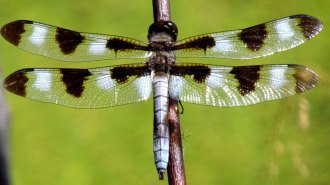 Animals
AnimalsClimate change may rob male dragonfly wings of their dark spots
Less colorful, cooler wings may be advantageous to dragonflies in a warmer world. But the change could mess with the insects’ mating.
By Jake Buehler -
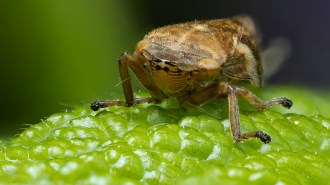 Animals
AnimalsFroghoppers are the super-suckers of the animal world
To feed on plant xylem sap, a nutrient-poor liquid locked away under negative pressure, froghoppers have to suck harder than any known creature.
-
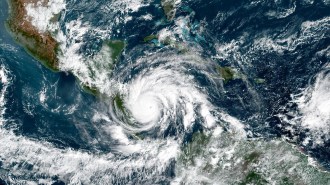 Climate
ClimateHurricanes may not be becoming more frequent, but they’re still more dangerous
A new study suggests that there aren’t more hurricanes now than there were roughly 150 years ago.
-
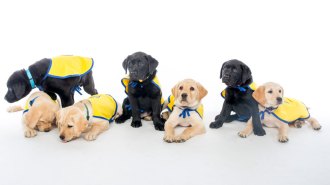 Animals
AnimalsDogs tune into people in ways even human-raised wolves don’t
Puppies outpace wolf pups at engaging with humans, even with less exposure to people, supporting the idea that domestication has wired dogs’ brains.